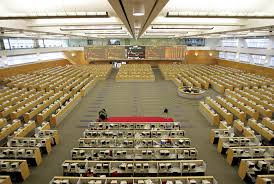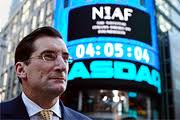
BrokerDealer.com update is courtesy of extract from coverage from TreasuryToday.com. consequent to Monday snafu at the Shanghai Stock Exchange , when China’s stock trading was so abundant that the Shanghai Stock Exchange’s software was unable to properly display the turnover data – apparently there were too many zeros to factor in.
Turnover on the Shanghai Stock Exchange exceeded 1trn yuan ($161.28bn) for the first time on the 20th April, but the country’s trading fever hit the news for a different reason – the exchange’s software was not designed to report volumes that high and, as a consequence, the data couldn’t be displayed properly.
A statement released by the Shanghai Stock Exchange confirmed that “this is software configuration issue, not a technical glitch.” It continued to explain that current software package, called SHOW2003, would need to be replaced in order to handle the higher volumes of reporting. Trading and price quotes for individual stocks were not affected, however.
For a directory of Hong Kong and Asia market brokerdealers, BrokerDealer.com provides the only global database of broker-dealers across the world
Resolving the software issue will be of upmost importance given the rapid growth of China’s stock market, which has nearly doubled over the past six months. The Shanghai Stock Exchange is now the world’s biggest in terms of turnover, totalling $1.85trn in March this year – surpassing the New York Stock Exchange which had a turnover of $1.53trn for the same month.
The last time this kind of software story was in the news, it was under very different circumstances: namely when the US national debt clock went past the $10trn mark in 2008. The upgrade to fix that glitch saw two extra digits added to the clock in anticipation of the country’s burgeoning debt.
